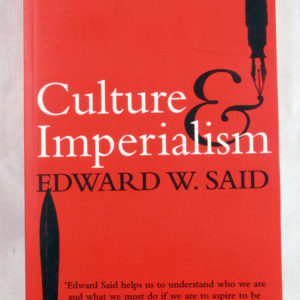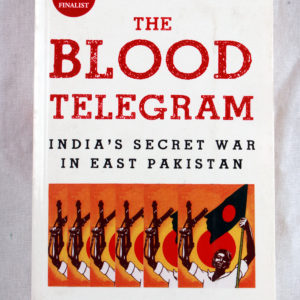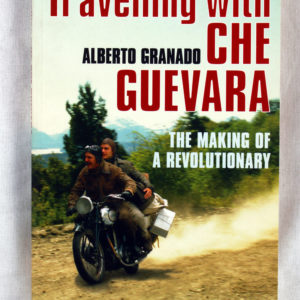The Art of War
₨ 318.00
The Art of War is a book which should be used to gain advantage of opponents in the boardroom and battlefield alike.
- Categories: History, Non-Fiction
- Tags: left books, Sun Tzu, the art of war
Twenty-Five Hundred years ago, Sun Tzu wrote this classic book of military strategy based on Chinese warfare and military thought. Since that time, all levels of military have used the teaching on Sun Tzu to warfare and civilization have adapted these teachings for use in politics, business and everyday life. The Art of War is a book which should be used to gain advantage of opponents in the boardroom and battlefield alike.
Related products
Translated from the Hindi by Madhu Singh With a foreword by Angela Y. Davis
September 1970. Ramchandra Singh enters the Hardoi District Jail in Uttar Pradesh as a naxalite undertrial. Barely twenty, his life of expanding prospects—in studies, politics and love—is reduced to the horizon of a life term. The odds are stacked against the survival of his humanity and imagination, but Singh regenerates his gifts of empathy, humour, reflection and, above all, language—in a secret diary smuggled out with the help of friends.
A singular record of recent history and of individual witness, Singh’s prison diary, newly expanded, appears in English for the first time. Offering unprecedented intimacy with the everyday life of the imprisoned everyman, Singh challenges us to look without flinching and question our assumptions about crime and punishment.
Ramchandra Singh (1949–2018), of Bangarmau village in Unnao district of Uttar Pradesh, was a member of the Communist Party of India (Marxist–Leninist) Red Star, and served on its Central Committee. He was part of the editorial board of Red Star Monthly (Hindi). He passed away when this book was in press.
Madhu Singh is a professor in the Department of English and Modern European Languages, University of Lucknow. She has previously translated the scholar G.N. Devy’s work, A Nomad Called Thief, into Hindi as Ghumantu Hain Chor Nahin.
Culture and Imperialism is a 1993 collection of essays by Edward Said, in which the author attempts to trace the connection between imperialism and culture in the 18th, 19th, and 20th centuries. It followed his highly influential Orientalism, published in 1978.
Said conceived of Culture and Imperialism as an attempt to “expand the argument” of Orientalism “to describe a more general pattern of relationships between the modern metropolitan west and its overseas territories.
Drawing on unheard white house tapes, recently declassified documents, and investigative reporting, gary bass uncovers an astonishing story of superpower brinkmanship, war, scandal, and conscience. This is the definitive account of the build-up to the 1971 indo-pakistani war and the birth of bangladesh. In the midst of this cold war cataclysm, the bangladeshis became collateral damage, victims of power games played by nixon, kissinger, yahya khan and even indira gandhi. Revelatory, authoritative and compulsively readable, the blood telegram is a thrilling chronicle of a pivotal chapter in south asian history. Awardspulitzer prize finalista new york times notable book of the yeara washington post notable book of the yearan economist best book of the yeara financial times best book of the yeara new republic best book of the yeara kirkus reviews best book of the year
In 1952 Alberto Granado, a young doctor, and his friend Ernesto Guevara, a 23- year- old medical student from a distinguished Buenos Aires family decided to explore their continent. They set off from Cordoba in Argentina on a 1949 Norton 500cc motorbike and travelled through Chile, Peru, Colombia and Venezuela. They worked as casual labourers along the way, as football coaches, medical assistants, and haulage hands. The poverty and exploitation of the native population changed them for ever. Each man later wrote an account of the journey. Alberto Granado realised later in his life that what they saw and encountered on their journey represented a crucial turning point. It strengthened Alberto’s determination to forge his career as a scientist. And it started the process that was to turn Ernesto- the debonair, fun- loving student- into Che, the man who fought for the liberation of Cuba and became the heroic and glamorous warrior fighting for freedom and social justice, who remains to this day in people’s minds Latin America’s foremost hero and one of the world’s great revolutionaries. A companion to Che’s Motorcycle Diaries, Alberto Granado’s book is a moving and at times hilarious account of how two carefree young men found their true purpose in life.






Reviews
There are no reviews yet.